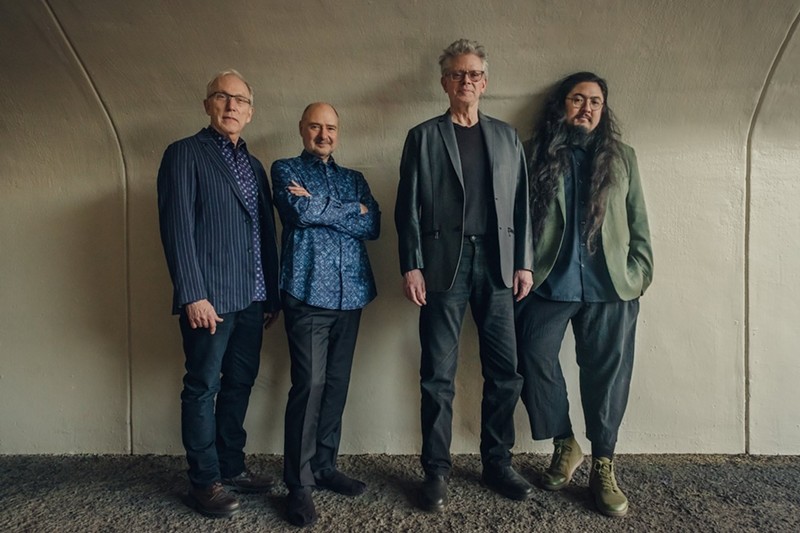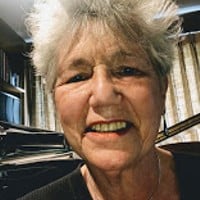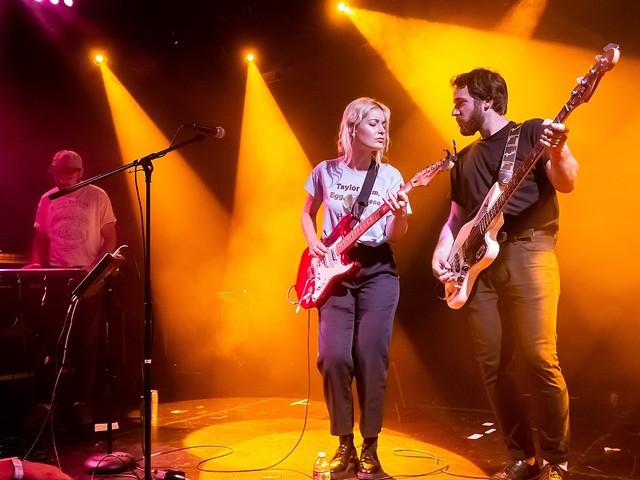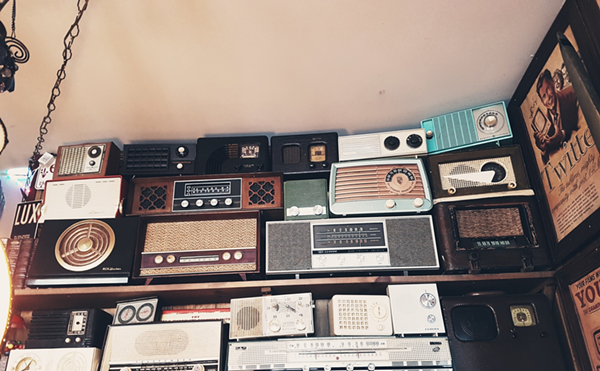
This story is featured in CityBeat's Oct. 4 print edition.
The Kronos Quartet makes an overdue return to Cincinnati on Oct. 10, opening Chamber Music Cincinnati’s 2023-24 season. Kronos has been on music’s cutting edge, upending chamber music and music itself since their first appearance in Seattle in 1973. From the outset, they challenged chamber music’s dominant, white male, Eurocentric boundary, wearing more casual clothing rather than formal suits and forging collaborations with an astounding range of artists across continents and media.
As it continues adding to the library of hundreds of commissioned works, Kronos keeps nudging chamber music into a world of vibrant, contemporary artistic creation.
Judging by a conversation with Kronos founder, violinist David Harrington, Kronos is also a remarkably effective antidote to aging. Speaking on Zoom from his studio in San Francisco, Harrington conveyed youthfully intense enthusiasm for Kronos’ work and their upcoming appearance at Memorial Hall.
“We’re not overly precious about tracking our history,” Harrington laughed, but he readily agreed that the lineup reflects Kronos’ penchant for programming all over the map.
The playlist includes “Aheym” from The National’s Bryce Dessner, which Kronos premiered at the 2009 MusicNOW Festival; Steve Reich’s “Different Trains” (1988); works by Nicole Lizée; electronic musician Jlin; Javanese composer Peni Candra Rini; and Kronos’ cellist Paul Wiancko. There will also be what Harrington says is a preview of a new piece by Gabriella Smith.
“And some guest artists TBA,” he added slyly.
Half the composers are women and Harrington credited his wife with pointing out the missing half at Kronos’ first performance in Seattle.
“When I asked her what she thought, she said, ‘It was fine. But where were the women composers?’ It was like a bucket of ice water — where were women composers? And for that matter, where were composers from Asia, Africa, the Middle East?”
Kronos committed to artistic inclusion, forging relationships with contemporary composers, both established and emerging, with collaborations and commissions. A Kronos concert might include works by Patti Smith, Thelonius Monk, Philip Glass or Aleksandra Vrebalov, whose opera The Knock had a sold-out run for Cincinnati Opera this past summer.
It’s never less than edgy and eclectic, and there’s always something new, which is precisely the quartet’s goal.
Harrington pinpoints Kronos’ origins to August 1973, when he first heard George Crumb’s “Black Angels,” a stunning work for electric string quartet, bowed water glasses and percussion.
“I’d never heard anything like that,” Harrington recalled. “I had a musical response to the war in Vietnam — the piece combined sounds from Jimi Hendrix and [Franz] Schubert, with so many different approaches to performance.
“That was the spark. I didn’t have a choice: I had to start a group who could play that piece because I wanted to play it.”
Two of Kronos’ members have remarkably long tenures. Violist Hank Dutt joined in 1977; violinist John Sherba in 1978. Composer and cellist Paul Wiancko took over from Sunny Yang in January.
“I knew Paul first as a composer; we’re playing one of his pieces at our Cincinnati concert,” Harrington said. “And he’d subbed for Sunny several times and it was natural to call on him.”
Wiancko agrees that Kronos was an influencer as he studied cello and expanded his career to composition. “I feel I owe so much to these guys who’ve made my life, the way it is, possible,” he said in an interview with San Francisco Classical Voice. (Wiancko recently moved to Cincinnati with his partner, violist Ayane Kozasa, who joined CCM’s faculty last year).
Kronos’ 50th anniversary offers an excuse to search for karma, and there’s no shortage. Fifty years after Harrington’s wife observed there were no women composers at that first concert, Kronos was named Ensemble-in-Residence for Luna Composition Lab, the groundbreaking initiative mentoring female, non-binary and gender-nonconforming composers in their teens, founded by composers Missy Mazzoli and Ellen Reid.
Fifty for the Future is Kronos’ most ambitious and wide-ranging commissioning project, initiated to create a body of contemporary works for any string ensemble, anywhere, available as free downloads.
To date, there have been over 35,000 downloads in over 100 countries, Harrington said. “And we’ve noticed that many of these compositions are being performed more frequently.” Every Kronos program includes at least one FFF work; Cincinnati’s program features two, including “Only Ever Us” by Wiancko and “Meduswara” by Rini
Chamber Music Cincinnati requires its visiting artists to work with young musicians and Kronos will spend time with the Cincinnati Symphony Orchestra’s Nouveau players and with CPS students.
When asked to reflect on Kronos’ longevity, Harrington laughed. “After our first rehearsal, I wondered if there’d be a second one! But it’s really happened slowly. It happens one piece at a time, one note at a time.”
Exuberance returns as he adds, “When you jump into a life like this, there’s no end to music. There are so many things that are not in the realm we work in. I could live to be 500 years old, and I would not run out of material.”
Kronos Quartet performs at Memorial Hall on Oct. 10 at 7:30 p.m. Info: cincychamber.org.
Subscribe to CityBeat newsletters.
Follow us: Apple News | Google News | NewsBreak | Reddit | Instagram | Facebook | Twitter | Or sign up for our RSS Feed






